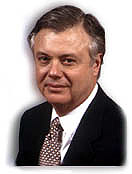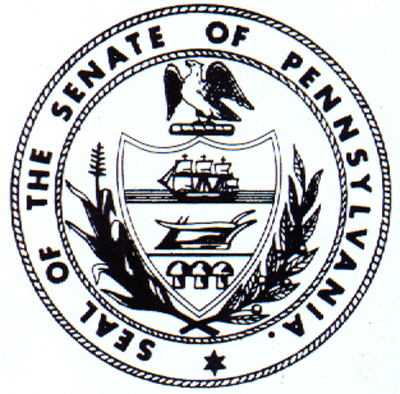|
|
||||||
BACKGROUND ON DEVELOPMENT OF SLOTS LEGISLATION HARRISBURG, PA, June 24, 2004 -- The original bill legalizing slot machines at up to eight racetracks in Pennsylvania first received serious consideration in the spring of 2003. Senator Vincent Fumo (D-Philadelphia) and the Senate Democratic caucus, which is expected to supply the overwhelming majority of affirmative votes for final passage, held the bill up for about six weeks in May and June of 2003 while insisting on significant changes to the legislation. A version of the bill, containing many provisions to provide value for taxpayers and guard against corruption, passed the Senate on June 25, 2003. The House watered down the bill before passing it the following month, and no further action was taken. Slots legislation was close to being brought to a vote in the Senate in December 2003, at the same time the Legislature was completing work on education funding for the current fiscal year’s budget, but more than a dozen issues remained unresolved and plans to consider the slots bill were postponed indefinitely. In the intervening 12 months since the Senate vote last June, Fumo hired experts and studied the gambling issue further, and with the backing of the Senate Democratic caucus, continued to press for improvements in the legislation. As the final negotiations took place, the draft of the bill prepared by Fumo provided the framework for the legislation. Many legislators, along with the Rendell Administration, provided input into the final product which was recently agreed upon by negotiators. The following are provisions of the proposed bill for which Fumo was the primary advocate: An up-front license fee. At first Fumo considered auctioning licenses, but when that proved to be politically impractical, he insisted on a license fee. The resulting $50 million up front fee, plus $5 million from each of two resort operators, will result in a one-time infusion of $610 million to the state treasury. (The original legislation would have given slot license to racetrack owners.) A ban on political campaign contributions from slot operators. At least four non-track venues. The original bill called for licenses at eight racetracks, while the stated goal of the proposal was to raise $1 billion for property tax relief statewide. Senator Fumo commissioned a market study by the industry leader (the Innovation Group from Louisiana), asking it to provide information on the number and types of venues necessary to generate $1 billion. The result was the proposal to license 12 venues, including four or five non-racetrack slot parlors in urban areas. Strategic placement of slot venues to maximize state revenues and prevent market oversaturation. A central control system, whereby the state Department of Revenue can electronically monitor every slot machine in the state and shut it down electronically from a remote location if it detects an anomaly. State first-collection of slot revenue. Unlike the original bill, which allowed slot operators to collect all receipts and disperse the proceeds to other parties up to one week later, this legislation will require that all machine revenue be electronically transmitted to the state on a daily basis. The state will then disperse the money to other parties. Fair share for horsemen. Fumo fought to make sure that horsemen receive a fair share of the proceeds from slots, to help the state’s horse racing industry. Upon full deployment of venues, they will receive an amount equal to 18 percent of gross terminal revenue from their track. (The percentage of the total statewide revenue is smaller because non-track venues will also contribute to the pool of money for horsemen.) Strict background and financial fitness checks on all potential slot operators before they are awarded a license – the strongest standards in the nation. Requirement for a Tax Clearance Certification, guaranteeing that potential slot operators are not delinquent on state taxes, before granting of a license. Prohibition against allowing slot operators to accept credit cards in any way that would allow customers to play machines on credit, or cashing checks on the gambling premises, or using debit cards. One license per operator. Given the limited number of licenses available, in an effort to spread the business opportunities as widely as possible, the legislation will prohibit any person or business entity from owning greater than a one-third interest in a second gambling license. The licenses are considered state property, thus prohibiting the sale or transfer of licenses without state approval, and requiring state collection of the license fee from a new owner. Prohibits a public official from having a financial interest of more than 5 percent in a slot license. This also applies to members of the officials’ immediate family. Prohibits a member of the gaming board or executive staff members from going to work for a gambling operation for one year after leaving office. Prohibits the use of eminent domain to acquire private property for the benefit of a gaming establishment. Prohibits the placement of ATM machines in an area of the facility where slot machines are located. A fund for gambling addiction and treatment. Annually, $1.5 million will be deposited into a fund for problems gamblers. Self-exclusion for addicted gamblers. Those with a gambling problem can voluntarily place themselves on a list held by all slot parlors, which will then be required to bar them from playing slots. Creation of a distribution system for slot machines that will ensure additional business opportunities for Pennsylvania residents. # |


